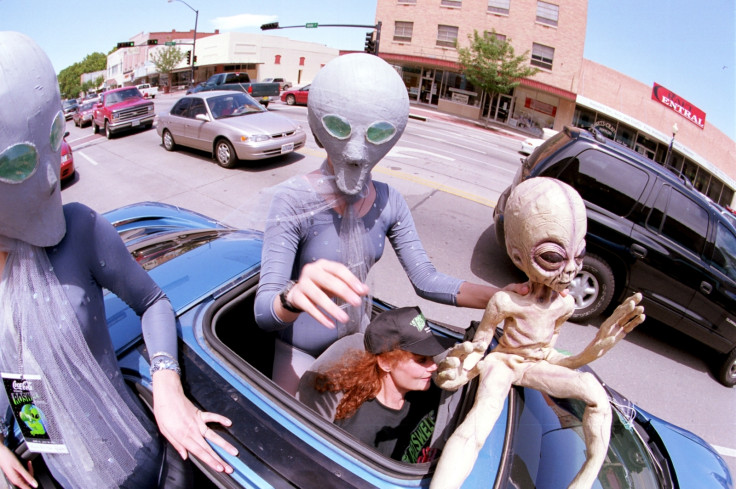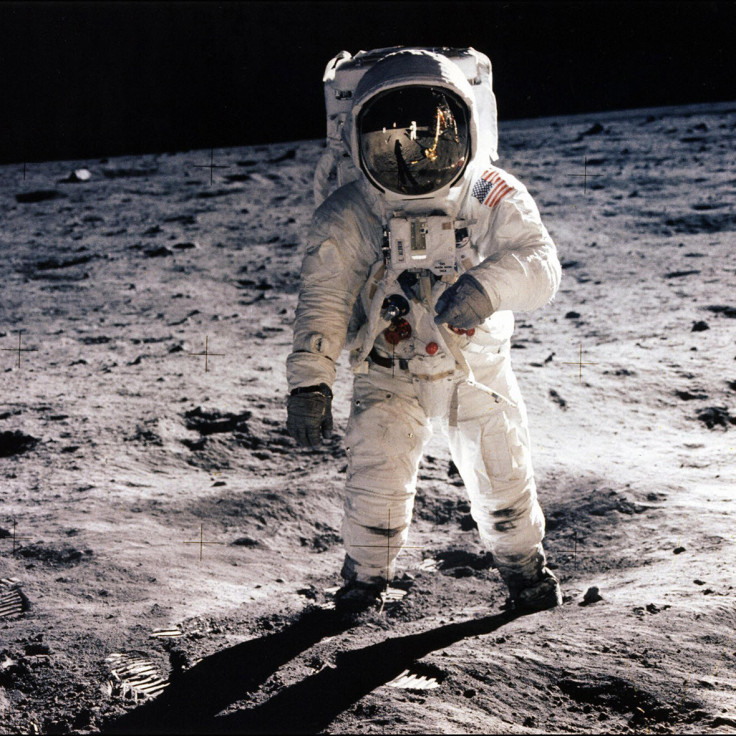Have Donald Trump and social media made conspiracy theories more acceptable than ever before?
KEY POINTS
- Stress has been linked to the belief in conspiracy theories.
- Professor Viren Swami believes the US president and the internet may have loosened the stigma around conspiracy theories.
Wake up sheeple! The moon landing was faked by the US government, Elvis is alive (as is Tupac) and Walt Disney's body is cryogenically frozen. These are all facts and if you don't believe them you are a brainless drone. Except of course they're not facts and you're probably not a brainless drone – not unless you ask devout conspiracy theorists.
So what leads some people to believe that major world events are fabricated, covered up, or reworked by a mysterious and omnipresent organisations?
IBTimes UK spoke to Viren Swami, professor of social psychology at Anglia Ruskin University, to find some answers. He has spent years researching the psychology of anomalous beliefs like conspiracy theories, and in a 2016 published a study suggesting that people who believe in such falsehoods are more likely to be suffering from stress than non-believers.
How do you define a conspiracy theorist? At what point does a person with a passing interest in these ideas pass the threshold into being a 'full-blown conspiracy theorist'? Is there such a thing?
In general, a conspiracy theorist is some who believes that there is an omnipresent and omnipotent group of actors working together towards malevolent goals. Most social psychologists view conspiracy theories as a subset of false beliefs, that is, a commonly-held but erroneous belief about real persons or events that exaggerate or distort their reality.
Santa Claus is a good example: if you believe that Santa Claus exists, then you are engaging in a false belief; if you believe that all parents covering up the fact that Santa Claus doesn't exist (maybe because they like having a holiday), then you are engaging in a conspiracy theory.
It's very difficult to know where the threshold between "passing interest" and hardcore belief in conspiracy theories lies, but what we do know is that people who adopt one conspiracy theory are much more likely to assimilate new conspiracy theories. This is called the "monological belief system".
Is there a particular type of person who becomes a conspiracy theorist? For example a particular demographic, or someone who has had a certain experience? I understand that stress is a factor...
The short answer is no. Belief in conspiracy theories is widespread, which makes it very difficult to profile the conspiracy theorist. For example, surveys in the US suggest that up to a half of respondents in nationally representative surveys believe in at least one conspiracy theory.

However, there are many factors that are known to make belief in conspiracy theories more likely. Stress is one such factor, but there are many others, including intuitive thinking styles, low self-esteem, greater militant tendencies and political extremism, political alienation, etc.
Is there any evidence to suggest that the presidency of Donald Trump and the notion of "fake news" and "alternative facts" have made conspiracy theorists more confident in their beliefs and broken the stigma surrounding it?
Not that I have seen, though Trump's presidency is relatively recent and psychological research on his presidency will take time to catch up.
Anecdotally, however, it is interesting to note that this is probably the first time in recent history that a President of the USA has actively engaged in the dissemination of conspiracy theories. That will almost certainly make it more likely that his followers will borrow similar language and spread conspiracy theories even further.
What affect has social media and the internet more widely had on the culture of conspiracy theories?
Again, the research has yet to catch up, but there is a suggestion that social media has made it easier for individuals to be exposed to new conspiracy theories than ever before.
The Flat Earth conspiracy theory is a good example: for a long time, it was a fringe belief, but more recently it has gained traction having been popularised by celebrities on social media.
Have conspiracy theories always existed? What is the earliest one?
Depends what you mean by "always". It's really difficult to know what was the earliest conspiracy theory, but the Wikipedia page on the topic includes a good compendium. The Protocols of the Elders of Zion, and the narratives surrounding it, is a good example of an early conspiracy theory, but it is by no means the earliest.

How can we tackle conspiracy theories at a time where there is anti-expert, anti-intellectual sentiment in society?
This is my personal opinion, but I think we (as a society) need to do two things. The first is we need to get better at promoting critical-analytical thinking skills. There is mounting evidence that the ability to think critically and analytically acts as a buffer against false beliefs generally and conspiracy theories specifically, so we need to be doing more to promote these skills.
The second thing we need to do is promote greater democracy and transparent governance. It is my view that many conspiracy theories emerge because people feel powerless when faced with big organisations and government that do not have their interests at heart. Promoting local democracy, in which people have much greater say in how things are run and for whom, is a vital starting point. That won't eliminate conspiracy theories, but it will give people fewer reasons for engaging in false beliefs.






















